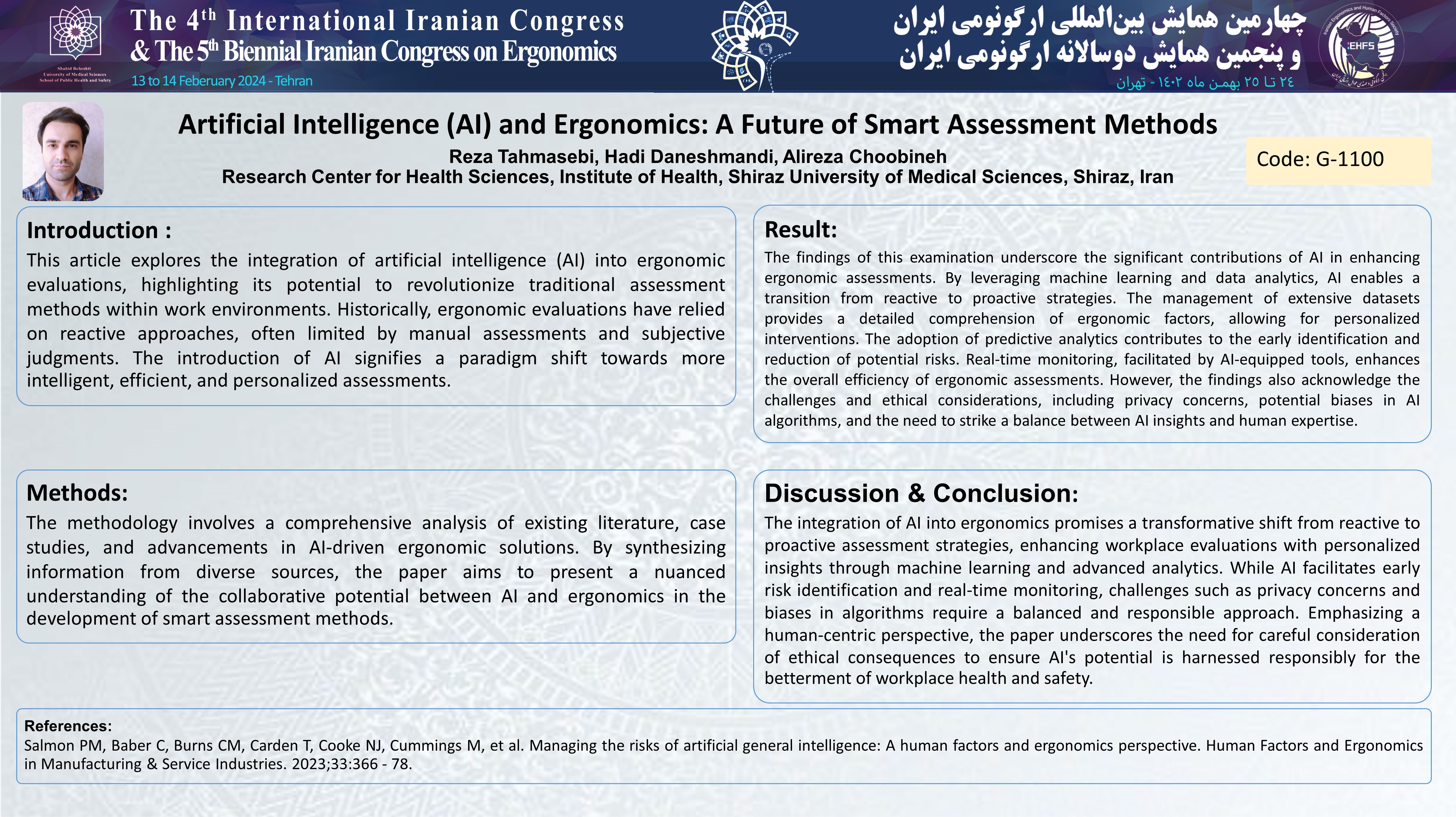Artificial Intelligence (AI) and Ergonomics: A Future of Smart Assessment Methods
Code: G-1100
Authors: Reza Tahmasebi ℗, Hadi Daneshmandi, Alireza Choobineh ©
Schedule: Not Scheduled!
Download: Download Poster
Abstract:
Introduction
This article explores the integration of artificial intelligence (AI) into ergonomic evaluations, highlighting its potential to revolutionize traditional assessment methods within work environments. Historically, ergonomic evaluations have relied on reactive approaches, often limited by manual assessments and subjective judgments. The introduction of AI signifies a paradigm shift towards more intelligent, efficient, and personalized assessments.
Methods and Materials / Case Report
The methodology involves a comprehensive analysis of existing literature, case studies, and advancements in AI-driven ergonomic solutions. By synthesizing information from diverse sources, the paper aims to present a nuanced understanding of the collaborative potential between AI and ergonomics in the development of smart assessment methods.
Results
The findings of this examination underscore the significant contributions of AI in enhancing ergonomic assessments. By leveraging machine learning and data analytics, AI enables a transition from reactive to proactive strategies. The management of extensive datasets provides a detailed comprehension of ergonomic factors, allowing for personalized interventions. The adoption of predictive analytics contributes to the early identification and reduction of potential risks. Real-time monitoring, facilitated by AI-equipped tools, enhances the overall efficiency of ergonomic assessments. However, the findings also acknowledge the challenges and ethical considerations, including privacy concerns, potential biases in AI algorithms, and the need to strike a balance between AI insights and human expertise.
Conclusion
The integration of AI into ergonomics promises a transformative shift from reactive to proactive assessment strategies, enhancing workplace evaluations with personalized insights through machine learning and advanced analytics. While AI facilitates early risk identification and real-time monitoring, challenges such as privacy concerns and biases in algorithms require a balanced and responsible approach. Emphasizing a human-centric perspective, the paper underscores the need for careful consideration of ethical consequences to ensure AI's potential is harnessed responsibly for the betterment of workplace health and safety.
Key Words
Artificial Intelligence, Ergonomic Assessment, Work Environment, Smart Assessment
Comments (0)
Post a comment
Post comment is closed by admin.
